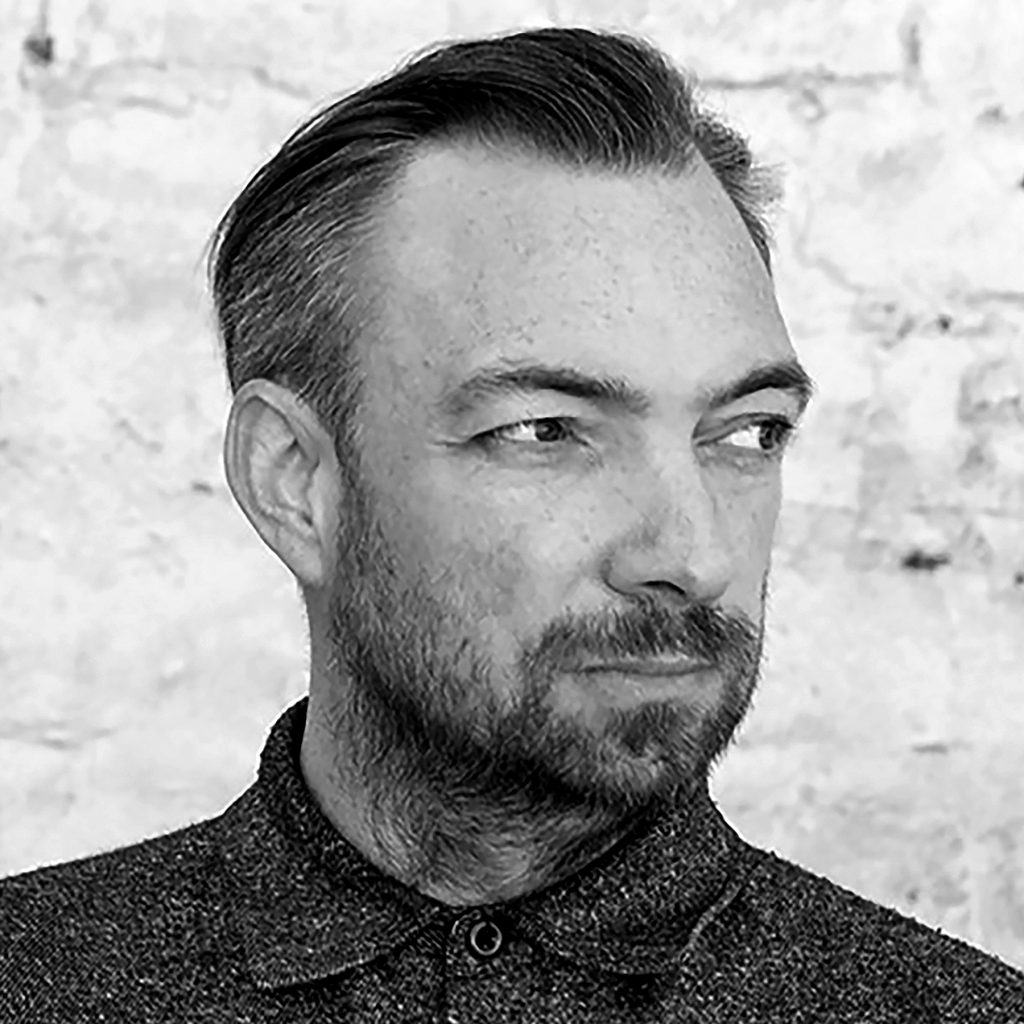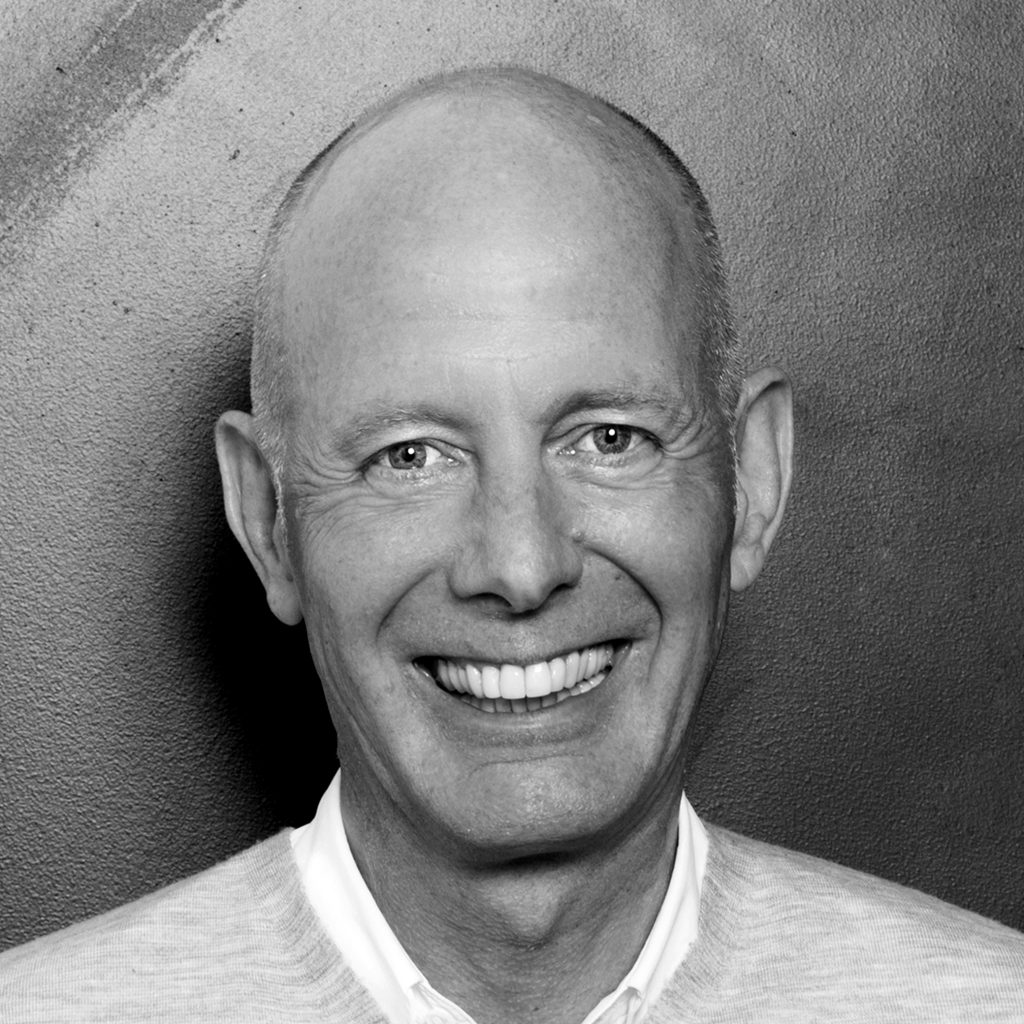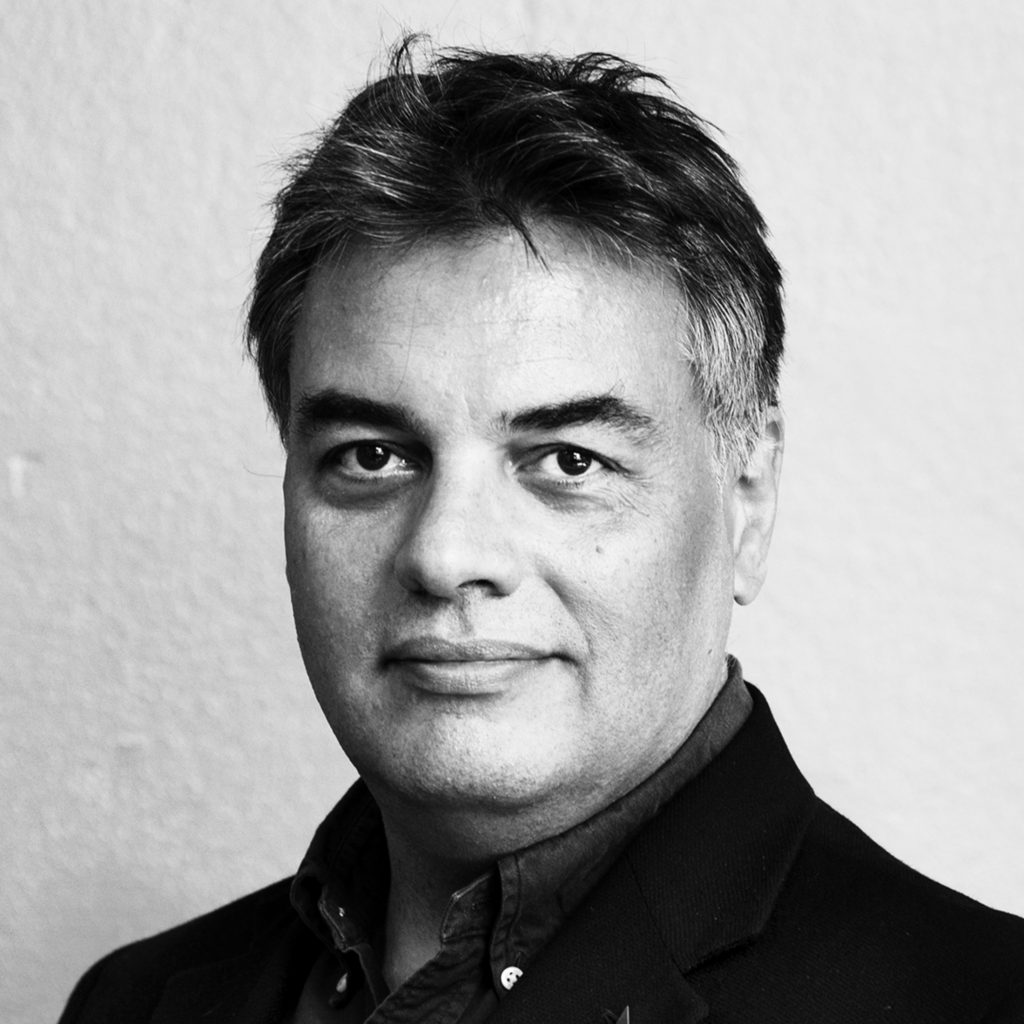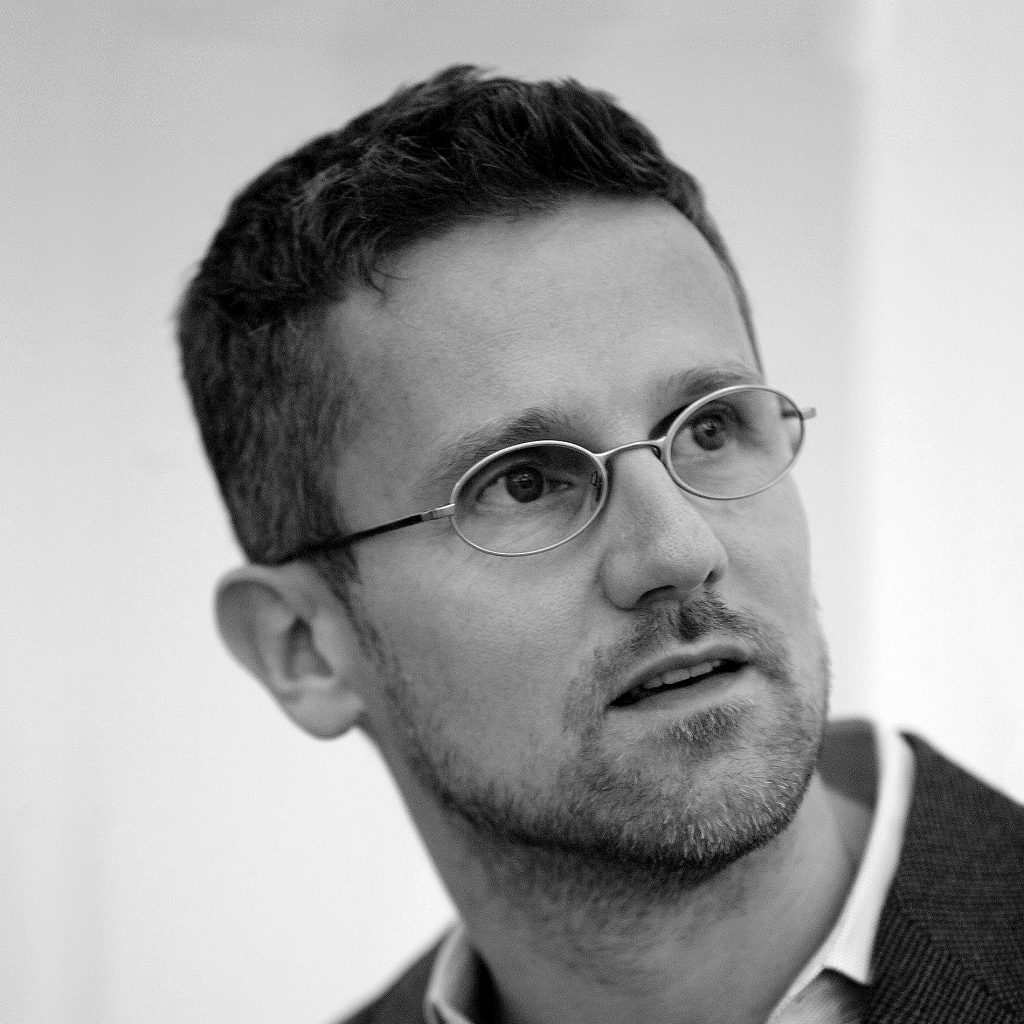As part of the CAADRIA 2021 conference, four Keynote Lecture Events will take place towards the end of each conference day. The keynotes are presentations by world-leading figures from a range of fields related to innovation and projection in architecture and urbanism and form some of the highlights of the conference. Each presentation will be followed by a short Q&A session, and will be open to all conference participants and to a wider audience through separate registration. In addition to the keynote lectures, the conference includes a series of roundtable conversation events, documented on this separate page.
Day 1: Liam Young
Monday 29 March, 18:00 pm HKT
Day 2: Ben van Berkel
Tuesday 30 March, 18:00 pm HKT
Day 3: Cristiano Ceccato
Wednesday 31 March, 18:00 pm HKT
Day 4: Carlo Ratti
Thursday 1 April, 18:00 pm HKT
Day 1 Keynote Lecture:
Worlds Less Travelled
Monday 29 March, 18:00 pm, Hong Kong (11:00 am, London / 03:00 am, Los Angeles)

Liam Young
Coordinator, MA in Fiction and Entertainment, SCI-Arc
Founder, Tomorrows Thoughts Today
Co-director, Unknown Fields Division
Our perception of the world is largely shaped through the mediums of fiction. Through film we have always imagined alternative worlds as a way of understanding our own world in new ways. A critical role of Science Fiction is to provide a counter balance to the prevailing media narratives around emerging urban technologies. Typically our imagined futures are based on a solutionist view of technology and are marketed to us as simplified worlds of better and brighter often ignoring the complexities, subcultures and unintended consequences that result when technologies are democratized and rolled out at scale. In this talk, Liam Young will narrate a series of stories from these worlds less travelled, just small glimpses, fragments, vignettes and snapshots from a series of his films that will come together to create a portrait of an alternative future of technology, urbanisation and automation.
Liam Young is a speculative architect and director who operates in the spaces between design, fiction and futures. He is cofounder of Tomorrows Thoughts Today, an urban futures think tank, exploring the local and global implications of new technologies and Unknown Fields, a nomadic research studio that travels on expeditions to chronicle these emerging conditions as they occur on the ground.
Described by the BBC as ‘the man designing our futures’, his visionary films and speculative worlds are both extraordinary images of tomorrow and urgent examinations of the environmental questions facing us today. As a concept designer he visualizes the cities, spaces and props of our imaginary futures including work on the forthcoming features Swan Song, starring Mahershala Ali and Awkwafina for Apple TV and Folding City for Chinese Production company Wanda in addition to production designing an unannounced new sci fi series for eOne. With his own films he is a BAFTA nominated producer and has premiered with platforms ranging from Channel 4, SxSW, the New York Metropolitan Museum, The Royal Academy, the BBC and the Guardian.
His work has been collected internationally by museums such as MOMA, the Met, the Victoria and Albert Museum, the National Gallery of Victoria and M Plus Hong Kong and has been acclaimed in both mainstream and design media including features with Wired, New Scientist, Arte, Canal+, Time magazine and many more. His fictional work is informed by his academic research and has held guest professorships at Princeton University, MIT, and Cambridge and now runs the groundbreaking Masters in Fiction and Entertainment at SCI Arc in Los Angles. He has published several books including the recent Machine Landscapes: Architectures of the Post Anthropocene and Planet City, a story of a fictional city for the entire population of the earth.
Day 2 Keynote Lecture:
Leveling-up our Design Methodologies
Tuesday 30 March, 18:00 pm, Hong Kong (12:00 noon, Amsterdam)

Ben van Berkel
Professor, AA Dipl. (Hons), (F)RIBA, Hon. FAIA
Founder / Principal Architect, UNStudio
Founder, UNSense
In light of the challenges society is facing, UNStudio’s founder Ben van Berkel will present on the integral and human centric approach to health, flexibility and technology in their work. Leveling-up our built environment requires thinking about the relation between different scales. UNStudio has produced a wide range of work, from public buildings to infrastructure, offices to residential as well as interiors and products to urban master plans. With their focus distinctly placed on the future, in 2018 the practice founded a sister company, UNSense, an arch tech company that aims to create impact by developing technology and innovative solutions that improve quality of life for individuals, communities and the planet.
Ben van Berkel studied architecture at the Rietveld Academy in Amsterdam and at the Architectural Association in London, receiving the AA Diploma with Honours in 1987. In 1988 he and Caroline Bos set up UNStudio, an architectural practice in Amsterdam. Current projects include the Southbank mixed-use development in Melbourne, ‘Four’ a large-scale mixed-use project in Frankfurt and the Wasl Tower in Dubai.
With UNStudio, he realised amongst others the Mercedes-Benz Museum in Stuttgart, Arnhem central Station in the Netherlands, the Raffles City mixed-use development in Hangzhou, the Canaletto Tower in London, a private villa up-state New York and the Singapore University of Technology and Design.
In 2018 Ben van Berkel founded UNSense, an Arch Tech company that designs and integrates human-centric tech solutions for the built environment.
Ben van Berkel has lectured and taught at many architectural schools around the world. From 2011 to 2018 he held the Kenzo Tange Visiting Professor’s Chair at Harvard University Graduate School of Design, where he led a studio on health and architecture. In 2017, Ben van Berkel also gave a TEDx presentation about health and architecture. In addition, he is a member of the Taskforce Team / Advisory Board Construction Industry for the Dutch Ministry of Economic Affairs.
Day 3 Keynote Lecture:
Planetary Reticulum: Considerations for Global Multi-Modal Connectivity in the Post-COVID Era
Wednesday 31 March, 18:00 pm, Hong Kong (11:00 am, London)

Cristiano Ceccato
FRAeS FRSA
Director, Zaha Hadid Architects, London
In today’s globalised economy, multi-transport nodes bind cities together as part of an ever-growing, singular planetary network of complex urban environments. In the post-COVID world, we are confronted with the question of how to fill the intangible space between them and create a new balance across cultural boundaries, geographical barriers and growing political divides. This ‘infrastructural glue’, combined with new forms of travel, communication and decentralised collaborative work environments, is rapidly becoming the major catalyst for societal transformation in a 21st century tempered by pandemic and its politics.
Touching on examples from ZHA, this presentation will reflect on how multi-modal infrastructure projects of increasing complexity are designed and constructed to provide the innervation for cities around the world – the connective tissue for a truly global meta-urban condition. These excursions into transport design provide a thematic and functional counterpoints of nodes and connectors, and speculates on an architectural vision of inter-urban development on a worldwide scale.
Cristiano Ceccato is a Director at Zaha Hadid Architects (ZHA) in London, having previously worked for Frank O. Gehry Partners in Los Angeles. Trained as an architect and computer scientist, he engages across all levels of design and technical development, with worldwide project delivery experience on a wide range of typologies. Cristiano is also an accomplished software developer, having previously co-founded the BIM company Gehry Technologies in California.
Cristiano has spearheaded ZHA’s entrance into the aviation market since 2010. He is the Project Director for the Beijing Daxing Airport in China completed 2019; the Navi Mumbai International Airport in India; and the Western Sydney Airport under construction in Australia. Cristiano is a graduate of the Architectural Association and Imperial College in London. He is a Fellow of the Royal Society of Arts and a Fellow of the Royal Aeronautical Society, where he sits on the Air Transport Specialist Group board.
Day 4 Keynote Lecture:
Senseable Cities
Thursday 1 April, 18:00 pm, Hong Kong (12:00 noon, Milan)

Carlo Ratti
Director, MIT Senseable City Lab
Founding Partner, Carlo Ratti Associati
The way we live, work, and play is very different today than it was just a few decades ago, thanks in large part to a network of connectivity that now encompasses most people on the planet. In a similar way, today we are at the beginning of a new technological revolution: the Internet is entering the physical space – the traditional domain of architecture and design – becoming an “Internet of Things” or IoT. As such, it is opening the door to a variety of applications that – in a similar way to what happened with the first wave of the Internet – can encompass many domains: from energy to mobility, from production to citizen participation. The contribution from Prof. Carlo Ratti will address these issues from a critical point of view through projects by the Senseable City Laboratory, a research initiative at the Massachusetts Institute of Technology, and the design office Carlo Ratti Associati.
An architect and engineer by training, Professor Carlo Ratti teaches at the Massachusetts Institute of Technology (MIT), where he directs the MIT Senseable City Lab, and is a founding partner of the international design and innovation office Carlo Ratti Associati. He graduated from the Politecnico di Torino and the École Nationale des Ponts et Chaussées in Paris, and later earned his MPhil and PhD at the University of Cambridge, UK.
A leading voice in the debate on new technologies’ impact on urban life and design, Carlo has co-authored over 500 publications, including “The City of Tomorrow” (Yale University Press, with Matthew Claudel), and holds several technical patents. His articles and interviews have appeared on international media including The New York Times, The Wall Street Journal, The Washington Post, Financial Times, Scientific American, BBC, Project Syndicate, Corriere della Sera, Il Sole 24 Ore, Domus. His work has been exhibited worldwide at venues such as the Venice Biennale, the Design Museum Barcelona, the Science Museum in London, MAXXI in Rome, and MoMA in New York City.
Carlo has been featured in Esquire Magazine’s ‘Best & Brightest’ list and in Thames & Hudson’s selection of ‘60 innovators’ shaping our creative future. Blueprint Magazine included him as one of the ‘25 People Who Will Change the World of Design’, Forbes listed him as one of the ‘Names You Need To Know’ and Fast Company named him as one of the ’50 Most Influential Designers in America’. He was also featured in Wired Magazine’s ‘Smart List: 50 people who will change the world’. Three of his projects – the Digital Water Pavilion, the Copenhagen Wheel and Scribit – have been included by TIME Magazine in the list of the ‘Best Inventions of the Year’.
Carlo has been a presenter at TED (in 2011 and 2015), program director at the Strelka Institute for Media, Architecture and Design in Moscow, curator of the BMW Guggenheim Pavilion in Berlin, and was named Inaugural Innovator in Residence by the Queensland Government. He was the curator of the Future Food District pavilion for the 2015 World Expo in Milan and chief curator of the “Eyes of the City” section at the 2019 UABB Biennale of Architecture and Urbanism of Shenzhen. He is currently serving as co-chair of the World Economic Forum’s Global Future Council on Cities and Urbanization.